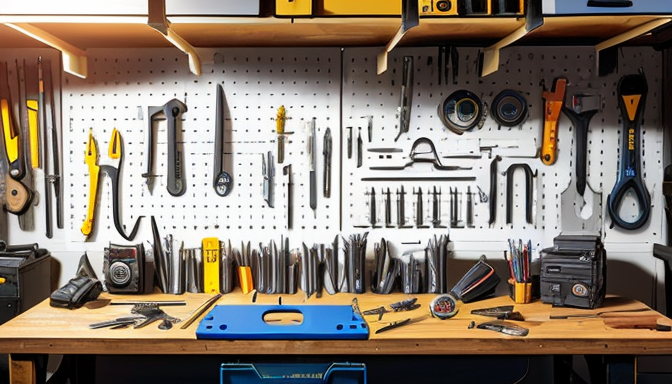Welcome to your ultimate guide for DIY car troubleshooting! Have you ever found yourself stranded on the side of the road, scratching your head and wondering, “What went wrong?” Fear not! This article is designed to empower you with the knowledge and skills to tackle common car problems head-on. Think of it as your personal mechanic in a digital format, ready to assist you whenever you need it.
Understanding your vehicle is crucial. Just like people, cars can exhibit signs when something’s not quite right. From strange noises to warning lights on the dashboard, these symptoms can be your first clue. For instance, if your engine is sputtering, it might be time to check the spark plugs or fuel system. By familiarizing yourself with these common car issues, you can quickly identify what might be going wrong. Remember, diagnosing a problem early can save you a lot of time and money!
But before you dive into fixing things, you’ll need the right tools. Imagine trying to cook a gourmet meal without a chef’s knife; it just doesn’t work! Similarly, having the essential tools at your disposal is key to effective troubleshooting. Basic hand tools like wrenches and screwdrivers, along with diagnostic equipment, can make a world of difference. In the upcoming sections, we’ll explore these tools in detail, ensuring you’re fully equipped to handle any automotive challenge that comes your way.
So, buckle up and get ready to embark on this exciting journey into the world of car troubleshooting. With the right knowledge and tools, you’ll not only save on repair costs but also gain a sense of accomplishment that comes from fixing your own vehicle!
Understanding Common Car Problems
When it comes to keeping your car in tip-top shape, understanding common car problems is crucial. Imagine your vehicle is like a well-oiled machine; when one part starts to falter, it can throw everything off balance. Some of the most frequent issues drivers encounter include engine problems, electrical faults, and fluid leaks. Recognizing these symptoms early can save you time and money down the road.
For instance, if you hear a strange noise coming from the engine, it might be a sign that something is amiss. This could range from a loose belt to a more serious issue like a failing water pump. Similarly, electrical problems can manifest as flickering dashboard lights or a car that won’t start. These issues often stem from a dead battery or faulty wiring, which can be relatively easy to fix if you catch them early.
Fluid leaks are another red flag to watch for. If you notice puddles under your car, it’s essential to determine the type of fluid leaking. Here’s a quick guide:
- Oil: Dark brown or black, often indicates an oil change is overdue.
- Coolant: Bright green or orange, suggests a potential overheating issue.
- Transmission fluid: Red or pink, may indicate a transmission problem.
By familiarizing yourself with these common problems, you’ll be better equipped to tackle them head-on. Remember, a little knowledge goes a long way in maintaining your vehicle and ensuring a smooth ride!

Essential Tools for DIY Troubleshooting
When it comes to DIY car troubleshooting, having the right tools is half the battle. Imagine trying to fix a leaky faucet without a wrench—frustrating, right? The same goes for your car. You’ll want a toolkit that empowers you to tackle various issues with ease. So, what should you have in your arsenal? Let’s dive into the essentials!
First and foremost, a good set of hand tools is crucial. This includes a variety of wrenches, screwdrivers, and pliers. These tools are your go-to for most minor repairs and adjustments. You might also want to invest in a mechanics tool set that comes with a ratchet and socket set, which can make tasks like changing oil or replacing spark plugs a breeze.
But wait, there’s more! For those tricky electrical issues, a multimeter is your best friend. This handy device can help you diagnose electrical faults by measuring voltage, current, and resistance. Additionally, having a OBD-II scanner can save you a trip to the mechanic by reading error codes directly from your car’s computer.
Lastly, don’t overlook the importance of safety gear. Always wear gloves and safety goggles while working on your vehicle. A well-equipped garage not only makes repairs easier but also keeps you safe. So, gather these tools and get ready to tackle any automotive challenge that comes your way!
Frequently Asked Questions
- What are some common signs that my car has a problem?
If your car is making strange noises, the check engine light is on, or you notice fluid leaks, these are all signs that something might be wrong. It’s like your car is trying to tell you it needs some TLC!
- Do I need special tools for DIY car troubleshooting?
While you can get by with basic hand tools, having a few specialized tools, like an OBD-II scanner, can make diagnosing issues much easier. Think of it as having a secret weapon in your automotive toolkit!
- Can I fix my car issues myself?
Absolutely! With the right knowledge and tools, many car problems can be tackled at home. It’s like cooking a meal; once you have the recipe and ingredients, you can whip up something great!
- When should I seek professional help?
If you’re unsure about the diagnosis or the repair seems too complex, it’s best to consult a professional mechanic. Just like calling a plumber for a leaky pipe, sometimes it’s best to leave it to the experts!